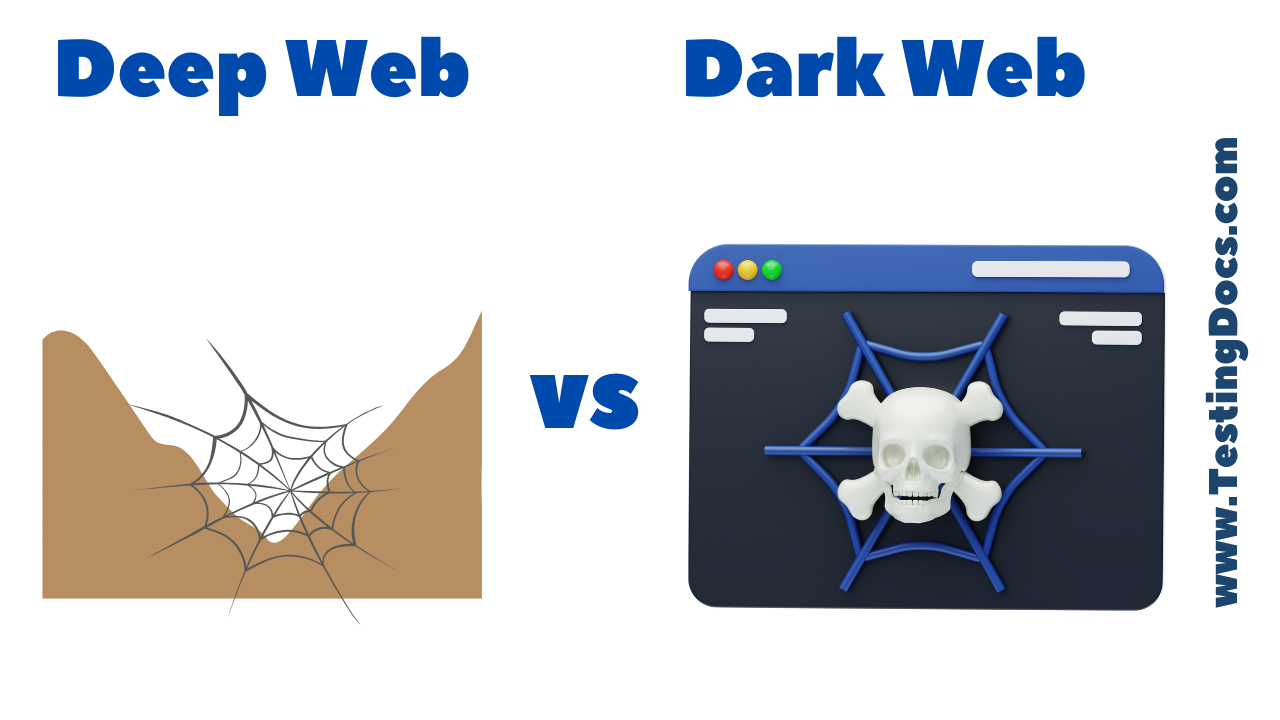Differences between Dark Web and the Deep Web
Dark Web and the Deep Web
Deep Web
The Deep Web refers to parts of the internet that are not indexed by traditional search engines like Google, Bing, or Yahoo. This includes databases, password-protected websites, private files, and any content that requires special access. The Deep Web is often used for legitimate purposes such as academic research, private company data, or personal accounts.
Dark Web
The Dark Web is a small portion of the Deep Web that is intentionally hidden and can only be accessed using special software such as Tor (The Onion Router). It is often associated with illegal activities like drug trafficking, hacking, and other illicit exchanges, although it also has legitimate uses for those seeking privacy and anonymity.

Deep Web vs Dark Web
| Aspect | Deep Web | Dark Web |
|---|---|---|
| Definition | Parts of the Internet that are not indexed by standard search engines. Includes databases, private sites, and encrypted content. | A small part of the Deep Web, intentionally hidden, accessed using specialized tools like Tor. |
| Access | Accessible with standard browsers like Chrome, Firefox, etc., if you have the necessary credentials. | Accessible only through special software such as Tor or I2P. |
| Content | Contains legitimate content like private company data, research papers, medical records, etc. | Often associated with illegal activities but also used for privacy-sensitive communication and anonymous browsing. |
| Legality | Completely legal and often used for privacy and security purposes. | Can host illegal content, but not all of it is illegal; it can also be used for anonymous communication and research. |
| Size | Much larger than the Surface Web and includes a vast majority of internet content. | Much smaller than the Deep Web, often associated with only a tiny fraction of internet activity. |

